“It’s the humanity that keeps people coming back for more”: Doctor Strange in the Multiverse of Madness press conference with the cast and creatives
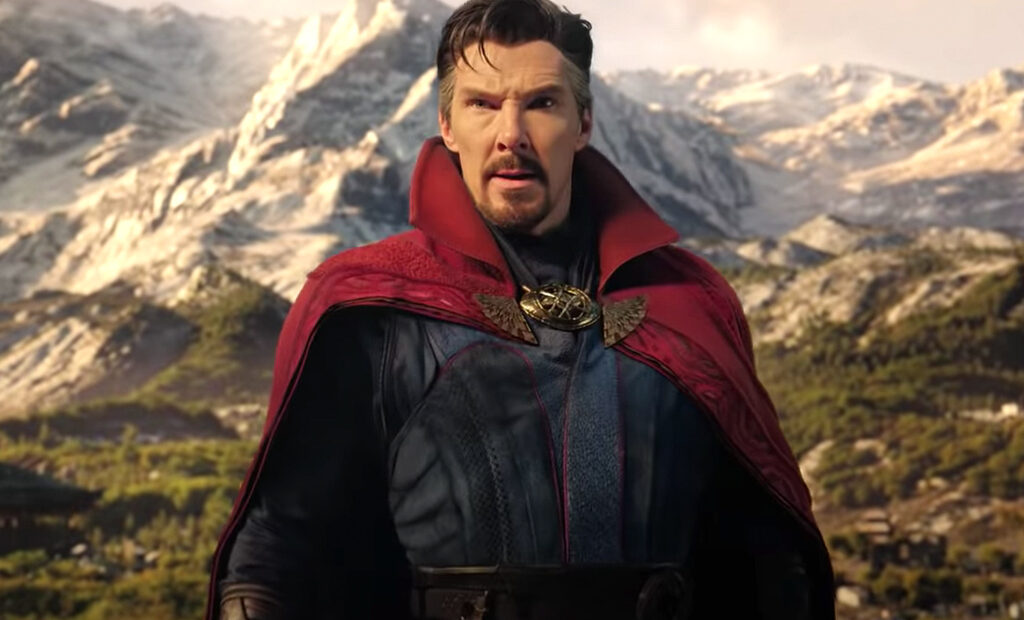
Doctor Strange in the Multiverse of Madness is the latest and 28th movie in the Marvel Cinematic Universe to hit cinemas, the sequel to 2016’s Doctor Strange. It sees the ever-versatile Benedict Cumberbatch, fresh off his lauded turn in The Power of the Dog, reprising his role as the titular character.
We heard from the cast and crew at the film’s press conference including Cumberbatch, Elizabeth Olsen, who plays Wanda Maximoff, Xochitl Gomez, who plays America Chavez, Benedict Wong, who plays Wong, director Sam Raimi, screenwriter Michael Waldron and producer and president of Marvel Studios, Kevin Feige.
Hello everyone. For you, Kevin, this is such a full-circle moment: in 2002 you were a young junior producer starting out on Spider-Man and now here you are with this. What is it like coming to this 20-year moment?
Kevin Feige: It’s surreal. And, as you say, yes, particularly surreal that it’s full circle with Mr Raimi. I was a young producer who just felt lucky to be in the same room with him. And now I’m an old producer that just feels lucky to be in the same room with him.
Sam, in so many different interviews you’re been referred to as “The godfather of modern superhero filmmaking”…
Benedict Cumberbatch: The don.
Knowing the challenges that this movie poses, as far as the script, the timing and the schedule are concerned, you might’ve been the only director who could do it?
Sam Raimi: Well, there were really a lot of Marvel movies being made when we made the Spider-Man movies with Kevin. Kevin was also working, I think, on the X-Men movies… and the Iron Man movies. So, Kevin and his boss, Avi Arad, were already developing the Marvel Cinematic Universe even back then. So I was very fortunate to get that directing job. I loved Spider-Man. I’m glad it had a moment in helping be one of the first MCU movies.
Moviemaking must have changed so much. What was the biggest thing you were interested in exploring when you came back to the MCU that that you weren’t able to explore because of limitations back in 2002?
SR: Well, the technology has changed, and it’s just become a lot easier. But, mostly, the technological difference that really enabled me to work on this movie so effectively was Zoom, the modern telecommunications system. I could speak to tens of crew members at once, we could show a storyboard from an artist, the editor could bring up a piece of the cut. We really had great audio/visual communication and you were able to speak to 100 people at once – it’s fantastic. But, as far as the most important thing that changed? The thing that didn’t change is how I want to answer your question. The most important thing is having great actors, like these two – like this gentleman, like this young lady – and them knowing that the most important thing they can do is within themselves. That’s how people connect to our superheroes. And these are great actors: they know what it’s like to be a human being; they’ve got a vast set of experiences that they’re not afraid to pull into their performances. And they also know their characters very well. These three at least have played their characters for so many years now, in so many important Marvel movies. It’s great to see the knowledge of their characters that they had in this film, because what they meet is the Multiverse – and in the Multiverse, it’s basically a mirror. And they meet altered versions of themselves. And these actors are so good, they just have to change the slightest aspect of their character’s personality to make an interesting conflict with the “alter self”.
Benedict C, what is it like kicking off this next chapter with this film? How did you approach the character’s shift? Does he change in his elder statesman role?
BC: I think yes and no, because he’s quite a maverick. He’s quite an outsider; he doesn’t immediately strike you as a leader, despite his prominence in the MCU at this moment. And that’s what makes him really interesting and conflicted, I think, as a hero. As Sam alluded to, it’s the humanity that keeps people coming back for more. And I think we see in the film an iteration of somebody who we’ve seen as very omnipotent, very creative and sort of omnipresent – all the “omni”s apart from omicron… and yet, we haven’t really understood what the cost of that is – what it is that’s fuelling that, both him as a person, but also within this mysterious realm of sorcery and magic? So, this one is about examining that and finding his flaws, his faults, his humanity, as well as his strengths, and renewing our understanding of him and deepening our understanding of him. So, as far as a leader goes, this is sort of, I would say, more of a self-examination in the way that Sam described, of holding up a mirror to him through this incredible narrative structure we have of a multiverse of other selves than it is examining what his potential is to lead. But, I will say this: he’s far better at being a collaborator, at working with others, at realising he can’t always be the one to hold the knife and control all himself. Those are pretty leaderlike qualities, I’d say. But he’s evolving… there’s that.
It will be interesting to see where he takes that. We got to see glimpses of it with him and Peter in the last instalment.
BC: That was him trying to be an adult, trying to be a sort of guardian, I guess, and getting it very wrong, to be honest. You know, there was some poor parenting in that film. I mean, he got angry with the kid, he tried to take the toy back, it all went a bit wrong. But he’s not rigid – he’s a very flexible character who is malleable to his experience. He’s a very quick learner, as we know – not just intellectually, but I think emotionally now as well. He’s deepening his emotional language. So it’s, I would say, a maturing leader rather than an elder. Listen, I’m the first person to call out that I’m 45 and that’s how I feel making these movies…
Elizabeth, with WandaVision they really put you through it! After essentially having ten mini-films where you got to live in this character, did it feel different coming into this film? Was your approach different?
Elizabeth Olsen: Yeah, I mean, I feel like in the previous films before WandaVision, I took up a lane for storytelling that was more grounded in sincerity, love, loss, grief. And with WandaVision, I got to become, like, anything and everything, and really, really grow her into a woman. And leading her to accept that she is this mythic woman and that that is her destiny. And I hope that in this film, people see that continuation of her acceptance of who she is and the journey that she has taken to get to this moment. I feel like she has way more clarity now than ever.
The character is infinite! Between the two of you, the two sorcerers, who’s going to win? Was that a theme on set – Wanda or Doctor Strange, who would win?
EO: Well, not really. I think we all know who would win.
BC: She’s pretty all-powerful, let’s be honest…I have humility. I accept that.
Xochitl, as America, would she be like, “I know exactly who I think is better, one way or the other”?
Xochitl Gomez: No, I mean, these are very powerful people.
BC: And it ain’t always what you got, it’s the way that you use it.
EO: Words of wisdom. A little inappropriate in this context…
Benedict Wong, let’s come to your character. Before Spider-Man: No Way Home, you mentioned got a call from Kevin talking about the WCU: the Wong Cinematic Universe. So, what has it been like being on this run lately?
Benedict Wong: As I’ve said many times, as a comic book fan and having collected all the Marvel comics, to be on board, I’m just, you know, living this dream, really. As kind of the nerd that crossed the line and gets to play with these amazing actors and auteurs and writers and producers – you know, it’s just a win-win for me.
As the ultimate comic book fan, what has been your favourite nerding out moment on-set?
BW: Oh, I mean, there’s just so many, really. I think also actually just meeting Stan Lee really was a massive moment for me.
Xochitl, America seems to bring a vibrancy to the MCU – she’s a breath of fresh air. Can you talk about what she is bringing to Doctor Strange?
XG: Yeah, I mean, one thing that was so important to me was that this is a very adult movie – there are lots of adults in it; it’s very heavy. And so I wanted to make sure that America still had that youthfulness and still had that “fake it till you make it” resilience. But when you’ve got some crazy stuff happening, it’s a little hard. I think one thing that really helps is that she is 14, which is younger than she was in any of the comics. So, I mean, that really helps in writing a new introduction, which I think Michael Waldron did beautifully.
Michael, every MCU script presents a new set of challenges – coming to this one, knowing you had to introduce new characters and also stay within the lore, and with all the crazy production you were also dealing with, what kept you centred in the storytelling? How did you keep to that core story?
Michael Waldron: Well, we just got the script done and just stuck to it. It was done early on – we never changed it… We have a locked script; it’s really easy. Look, I had the great benefit of kind of inheriting the bulk of these characters. And so I think that that was what certainly centred me creatively. You know, Stephen, Wanda, Wong – obviously America is a new character that Xochitl was originating – but in a lot of ways, I was just a steward of these characters on the page. And so there was a lot of opportunity to collaborate with these tremendous actors, who know them better than I could. And then, as the script evolved – which it very much was all the time – you’re really refining it and I guess it’s leaning on the people who have been doing it even longer than we have in this individual chapter. It’s a real team effort putting this story together.
Sam, as a follow up to that, as the director, you must have had to employ a lot of discipline. Can you talk about the shooting schedule and how you guys navigated just being two days ahead with the script pages?
SR: The script was oftentimes minutes before. And the actors are very creative.
Is that a euphemism for opinionated?
SR: Well, yeah, they’re opinionated. They know their characters better than anybody, so they’ll recognise in playing a the scene, “This is untrue. This feels like a manipulation or could it be more real”. And we’d make changes in the moment, trying to riff on that very good idea. And then when you’ve got great team members as a director, you really wanna pull the best of their ideas together and make something better than you could’ve made on your own. And that’s exactly what working on this movie was like for me: great actors, great ideas, a script that was constantly changing. But it was a very lively process. Not only that, but the other movies that we have storylines from, some were being made concurrently – or had just finished – like WandaVision had just finished, or Spider-Man: No Way Home was also shooting. And our movie referenced those films. We had to have meetings with the director saying “What does Doctor Strange know by the end of No Way Home? Does he even remember the Multiverse?” I mean, we have plenty of questions that Michael had to take into the script in the moment and take their changes, and that change rippled through our movie. It’s probably for a writer like improv is for an actor; these movies are reacting, making up, changing things, and you have to be in the moment and take it in and go with it.
Benedict C, what was it like to portray different versions of Doctor Strange? What has been your favourite part exploring other sides of this character?
BC: I think what the Strange we know learns, really, from that. This multiversal narrative structure or idea is like it is in our own lives: we play multiple roles; we have an incredible capacity and imaginative space in our subconscious to imagine ourselves into different circumstances in our dreamscape, and I feel that this is an extrapolation of that, in the sense that he’s meeting other versions who are essentially him, but they’ve made different choices in different circumstances with different outcomes. So, it’s great fuel from a very odd spectacular self-therapy, really. Conversations, not just with me as an actor with my character, but with the character and other versions of the character. And just a lot of fun, as well, to sort of shift up the look, to shift the attitude or the mannerisms or the abilities and show “same but different”. It’s a fine balance, and we pushed it on some levels and less so on others, and just very much the finessing skill that Sam has – to hold all this complexity and go with what makes most sense for our hero, for the story. But I just wanted to throw down as many opportunities as possible. So, that was a wonderful gateway into doing that.
Elizabeth, by virtue of the way WandaVision is set up, there were so many different things you got to do – is there something that you got to do here, emotionally, or an aspect of your character you had yet to play?
EO: The answer is yes, I do feel like we are exploring something that I haven’t been able to explore yet with the character. I think it’s about this clarity and this confidence. And I’m being repetitive, but I do think that she has learned so much and has a sense of confidence that we haven’t seen of her yet.
Kevin, coming off of Spider-Man: No Way Home, has it been a challenge for you and the studio to keep all of the twists, secrets and surprises planned out for the MCU? How do you keep it all under wraps?
KF: Well, the unfortunate truth is, you don’t. And therefore you need to make sure that the experience itself works, regardless of what has been spoiled or not. We still do as good a job as we can, and I think a lot of people are getting good at not spreading it – if somebody steals something, don’t spread it around because it just potentially lessens the experience. But, in a lot of ways, No Way Home showed that it did not lessen the experience. So we will continue to do the best that we can, but the most important thing is delivering the movie or the show that delivers, regardless of what you know going in.
Sam and Elizabeth, superhero movies reference a superhero’s great power also being the cause of their greatest tragedies. What is the most exciting part of tapping into that with Scarlet Witch and presenting a hero who is still finding her limits and the consequences of her powers?
EO: I just think that my biggest goal for everything is to play the lawyer to my character and to defend, defend, defend. So whether or not their greatest strength is their greatest weakness, wherever they’re coming from, or whatever they’re processing, my goal is to just defend their perspective. And I don’t necessarily think of things as being weak – I don’t think we look at ourselves and we’re like, “Oh, this is a strength of mine.” But maybe we do. But I do think she’s constantly processing and I enjoy that… she’s constantly straddling this line. And usually in her biggest emotive losses or griefs is when something’s born. And that’s what’s kind of been the trend, and I do think we get to further that in this film, which is something that I’m happy about.
SR: She’s the classic character that loved not too wisely, but too well, and I think that’s a source of many of her aspirations in the film, and sometimes leads to less happy moments for her. I don’t want to spoil anything, but I think that Lizzy did a great job summing up her approach. And I think it’s so brilliant that you’re trying to defend the point of view of your character. It’s great. That’s what we all are trying to do in real life: “I’m this person and here’s what I believe in” – here’s why it’s all about trying to understand your beliefs and explain them and sometimes defend them. And I do see you doing that in the movie very effectively. It makes it very real. It makes the fantastic journey that Michael puts you on – that’s how she brings great humanity to it and makes it connective to the audience.
Kevin and Xochitl, how important was it for you to address America Chavez’s LGBTQ+ status in a meaningful way? And is there anything you can tease about what fans should expect from that moment?
KF: Well, it’s important, we always say that these films represent the world as it is and the world outside your window, as they used to say in publishing. And that aspect of America’s character is from the comics, so we always want to adapt them as well and as truthfully as we can. And I think when people see the movie, much like in life, it is not any one thing that defines any one character. And as Xochitl said, she’s a 14-year-old girl figuring out this very traumatic element of her life, which is not the LGBT issue – it is the fact that she keeps being tossed around the Multiverse, multiple, multiple times… and being truthful to that and showcasing that. And, again, that is not what the movie is about, but it is an important part of the character she becomes in the comics, so we wanted to touch upon that.
Benedict W, we’ve seen Wong in a few films, first in Doctor Strange. How would you say your character has changed and evolved into what we see now in the Multiverse of Madness?
BW: I think when I first took the job six years ago, we moved away from the old source material… and we developed and crafted this no-nonsense midfield general librarian who’s continued through four or five of the movies, and now is the no-nonsense Sorcerer Supreme. And, I love where we’re going with this and the character progression of that. And, yeah, we’ll see what unveils with this… You work on fries for a while, then you get to be area manager.
Benedict C, you’ve appeared in a variety of different roles and different genres since Doctor Strange, but after your appearances in the Avengers movies and Spider-Man: No Way Home and now in the Multiverse of Madness, would you say that Doctor Strange is a character that’s defined your career?
BC: Yeah, definitely. It’s one of the biggest, and it’s given me scope and freedom to support and nurture and finance smaller fare – delicate, difficult stories, and issues that otherwise I wouldn’t have been able to shine a light on, either as a producer or an actor. So I’m incredibly grateful for that opportunity, let alone this richly complex, very rewarding and fun character to play. I mean, I love being your Doctor Strange. So, career-defining? I’m on a journey… I’m on a journey, and this is a huge, huge part of it. I always try to freshen things up, seek different challenges and work with different people, and this job is no exception to that, you know? And while there are certain remits to doing a film at this scale – it’s sort of more of a marathon than a complete immersion for a short period of time in a character – it’s incredibly satisfying, the sheer level of inventiveness and childlike joy of playing and pretending that what’s here is utterly different to what is there or isn’t there in the greenscreen world of it. It’s a fantastic muscle to exercise again, to create authenticity out of literally nothing. And at the same time, I also get the most phenomenal, workable, real-world environments, when it’s the beautiful Sanctum Sanctorum, whether it’s four blocks of New York City that Charlie Wood, a very brilliant production designer on this and the first film, enables us to shoot and work with: that’s also an unsung joy of these films. It ain’t all little orange dots on a green world, but I like those as well.
You’ve all come from incredible work recently – particularly you two, Elizabeth and Benedict C – the Emmy campaign for WandaVision and all of those nominations, and also with The Power of the Dog. Can you tell if a person coming to meet you is a Doctor Strange, The Power of the Dog or a Sherlock fan?
BC: Yes and no… What’s great about it is that I get both: I get fans of the Marvel Cinematic Universe fans coming up to me, saying, “I loved you in Power of the Dog.” And that’s just what it should all be about. This is a very wonderful broad spectrum of culture that I get to occupy, and it’s proof – living proof – of my career, I guess, the active proof that there is room enough in our culture for both fare at any side or end or middle of a spectrum that requires all of it. And it is all nourishing. If Spider-Man gets people back into movie theatres to see The Power of the Dog, great. And the fact that I get to occupy both of those spaces and have fans appreciate both levels of work is a huge compliment and a massively humbling thing to occur, and it gives me great, great joy.
Xochitl, coming into this movie as a young female actor, who did you take the biggest cue from when performing alongside MCU vets?
XG: Well, I mean, all of these people are great. But in particular, I did look at Lizzie, especially while she was acting, and getting ready to kind of do the scene. I would just kind of watch her. I swear, it’s not stalker-like. It sounds stalker-like, but it’s not like that…
BC: We were all doing the same thing. We were all mesmerised by Lizzie…
EO: Aw… Oh, you guys, I’m so uncomfortable.
XG: She’s just a powerful woman.
BC: Own it.
XG: I mean, especially me, as a young girl, I would constantly look up to her, and I realised how much, like, five minutes before a scene that’s kind of difficult, she would kind of get in that moment. And I realised, “Oh, well, if she’s doing it, I should probably do it, too.” And so I did do that. And it helped me. I just learned so much from her, and she doesn’t even know it.
This is what’s so incredible now about the MCU and what you’ve all created over these 20 years – the MCU is so closely akin to award-worthy cinema and filmmakers as well, having people like Sam and Chloe and Taika all coming into it. Kevin, you’ve said it’s part of the formula now, to bring in these directors and then let them work freely within the parameters of Marvel, and that was something you guys prided yourselves on – basically creating a free sandbox that these directors can play in?
KF: Yeah, I think that was always the intention. The notion of the shared sandbox – that was new – which Sam has been talking about, and that took a little while to get people excited about. But I think [it goes] back to when Sony hired Sam on Spider-Man – hire a great voice and a great filmmaker to turn it into their own.
Sam, how exciting was it for you to bring some of your beloved horror elements into the MCU, since Spider-Man?
SR: It was great. When Kevin announced that this movie would be the first entry into Marvel putting their toe into the world of horror, I was thrilled that he called me to come in and talk about the possibility of directing the picture. I was able to take those horror films that I made in my youth and what I had learned from them: building suspense sequences, titillating the audience: “Gonna give them the scare now? No. Now, I’m gonna give it to them” – that’s stuff I was able to apply in the spooky sequences in this film. So it was very helpful.
Michael, can you talk about how the Multiverse of Madness expands on the idea of the MCU having a magical community of people? How far did you expand into mysticism and magic?
MW: Well, we expanded. There was an expansion. It’s a sequel, so I think that the first movie was very much about Stephen Strange entering this world of magic, learning about it and everything, and beginning to master it. And then we had Stephen in several other movies, and the Avenger films, and then in Spider-Man: No Way Home. This is our first time really in a movie that is his, and this is our chance to focus on that magic and check in on, “What does it look like, five years on? This guy who was the greatest surgeon, now he’s been a sorcerer for a while, he’s been through a lot, how good of a sorcerer is he?”. We’re seeing him kind of at the height of his powers. And I think that’s really exciting. And then, at the same time, you’re encountering Wong, who has become Sorcerer Supreme – he’s at the height of his powers. And then you have Wanda, who is actualised in a whole new way from the end of WandaVision, so you could say she’s at the height of her powers. So, yeah, I guess we’ve expanded… Lots of magic.
Elizabeth, Wanda’s a character is beloved by so many, and her journey is so important to us – what can we expect from her healing emotionally as she continues through this movie?
EO: I’m gonna sound so repetitive… I think through her processing of what happened in WandaVision, and through her processing her destiny, we find her in a place of strength and a belief system that she can rely on. And it’s all connected from WandaVision.
Thank you guys very much.
Sarah Bradbury
Doctor Strange in the Multiverse of Madness is released nationwide on 6th May 2022.
Watch the trailer for Doctor Strange in the Multiverse of Madness here:



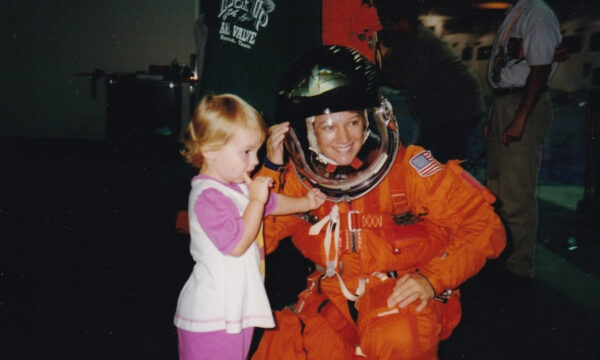
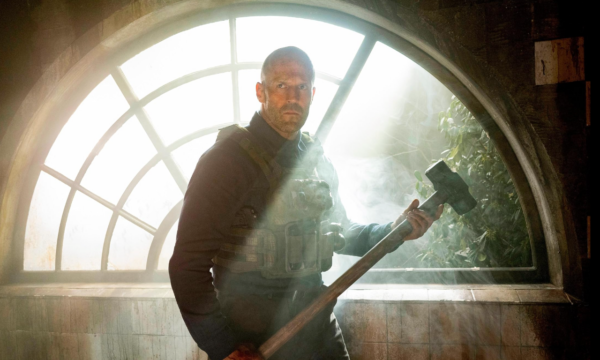
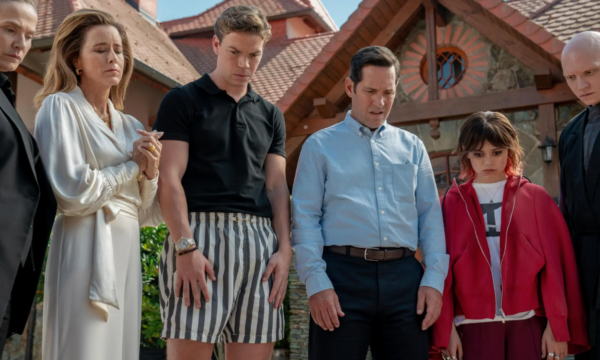
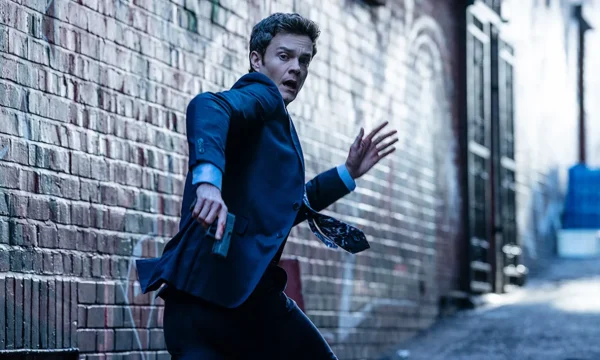

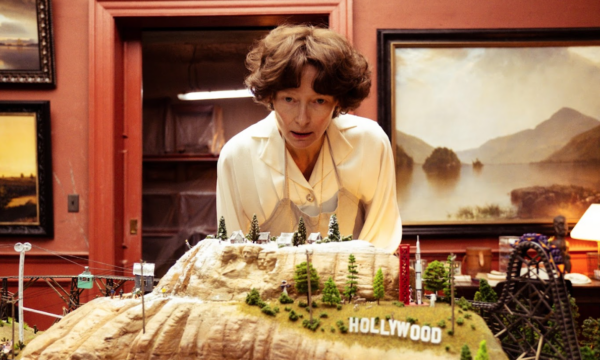











Facebook
Twitter
Instagram
YouTube
RSS